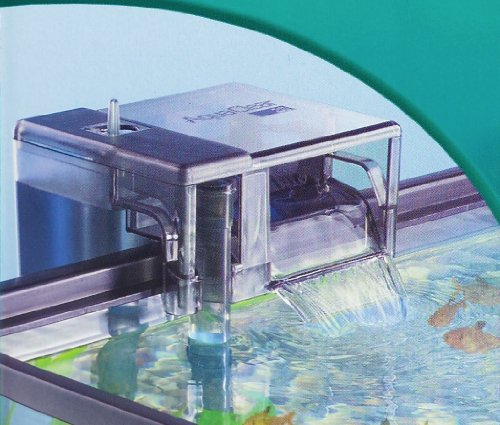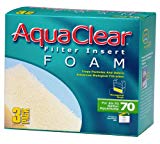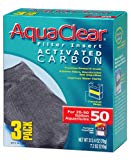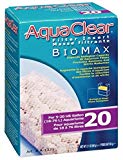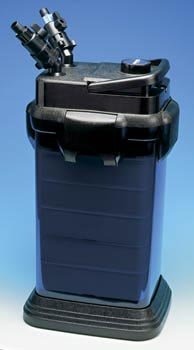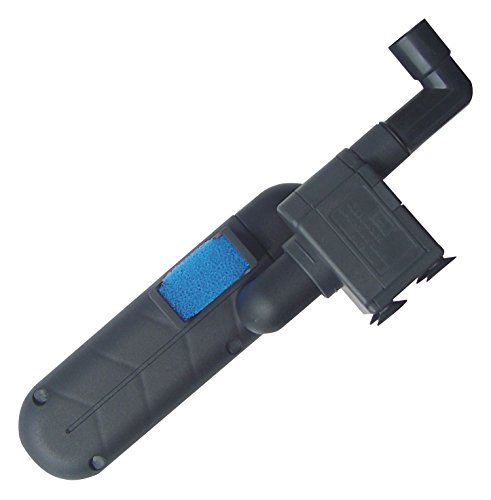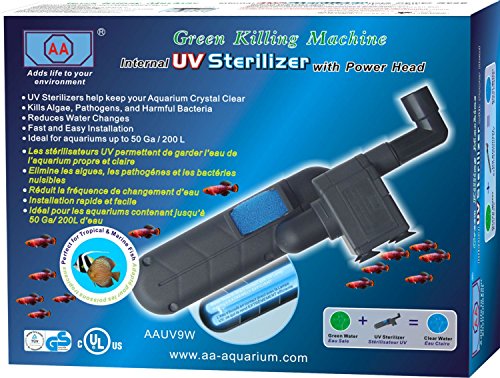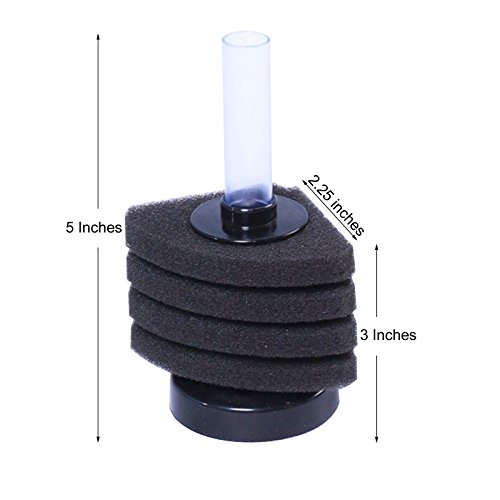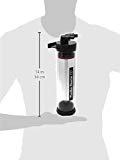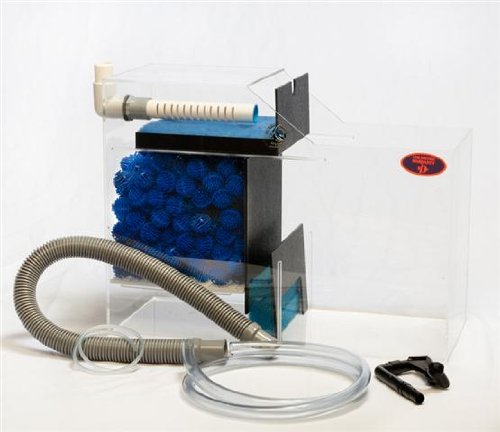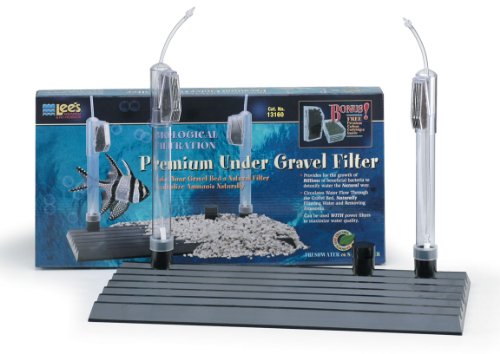7 Fish Tank Filter Systems
Easily work out which filter system you need. We’ve summarized filter types and highlighted their ‘best for’ use to ‘cut the clutter’ and confusion.
1.Power Filters (external filters)
2.Canister Filters
3. Diatomic Filters
4. Sponge Filters
5. Fluidized Bed Filters
6. Wet Dry trickle Filters
7. Under Gravel Filter
It’s an important decision with plenty of options. The best aquarium filter for you depends entirely on the type and size tank you have, whether you’re breeding fish, if you’ve got a problem with algae blooms in your tank that just won’t shift or you have a large saltwater aquarium.
Some filters perform specific functions and are better suited to deal with specific conditions.
There’s also a huge variation in price.
This is an essential piece of equipment that keeps the tank water clean by removing impurities and in turn keeping fish healthy. Lets’s get to the ‘nitty gritty’.
How do fish tank filters work?
They perform one or more of the functions of filtration.
The chemical filtration process involves the removal of toxins, dissolved matter, ammonia and odor from the tank water. This system may not always be necessary.
Mechanical filtration removes heavy waste and sediments.
Biological filtration is crucial for beneficial bacteria and to separate toxins and decay from the water.
#1 Power Filters
Power filters are very effective, commonly used and in fact the most popular external aquarium filters. They’re easy to install and maintain.
External filters come in a range of sizes to suit small to mid range sized tanks and handle mechanical as well as chemical filtration and bio filtration. They’re cheap to buy.
As a guide, we’ve chosen the popular Aqua Clear Power Filter here as one of the best aquarium filters based on effectiveness, price and reputation.
It offers 3 levels of filtration, mechanical, chemical and biological. The components within the filter responsible for the different filtration services need to be replaced on a regular basis.
These are the guidelines.
AquaClear foam filter insert– replace every 2 months
AquaClear activated carbon filter insert – replace every month
AquaClear biomax filter insert– replace every 3 months
Cleaning the filter is easy, but this job needs to be done regularly. We recommend every 2 weeks to keep it working at its best.
The cleaning procedure is very simple.
1. Unplug and separate the components
2. Thorough rinse and remove any build up of deposits in all components including cover and filter basket
3. Reassemble the filter and attach to the back of fish tank.
4.Fill with aquarium water
5. Plug in and it will start up working again within a few seconds
These are heavy-duty and more powerful external aquarium filters best suited to medium and large tanks.
Suitable for freshwater, saltwater, reef and turtle tanks.
With canister filters water is forced through a filter medium. Their biological filtration capacity can also be increased with a bio-wheel.
They’re more difficult to clean and maintain then power filters.
There is a step up in price which reflects the fact that this is a more powerful system for larger tanks.
#3 Diatomic Filters
If you’re battling with green water in your tank due to recurring algae bloom problems this is a filter system for you.
Diatomic aquarium filters are submersible units that clean the water by getting rid of even very small particles. They’re suitable where fine particles like diatomic algae cause a problem.
This UV radiation filtration system safely eliminates cloudiness, impurities & bacteria. The growth of mold, yeast and other pathogens is stopped by the UV sterilizer. The result is clear water for your fish to live.
- Pick me if your looking for the best filter to battle algae blooms and eliminate cloudy water
#4 Sponge Filters
Sponge filters are best suited to fish tanks with fry and tiny fish as they are gentle and produce minimal current. There’s reduced risk of drawing the fry or delicate fish through the filter operation or being injured.
This is also the filter to use for bettas as they don’t like current or turbulent water.
The filter still produces tiny bubbles increasing oxygen in the water and managing biological and mechanical filtration needs.
The sponge draws bacteria and helps to break down harmful waste (ammonia and nitrite).
![]() They quickly clog with excess debris and need frequent cleaning.
They quickly clog with excess debris and need frequent cleaning.
Biochemical sponge filters can also be used as a secondary filter to your main filter. They are cheap to buy.
#5 Fluidized Bed Filters
#6 Wet Dry Trickle Filters
![]() They can clog easily. Measures to reduce this problem include installing a pre-mechanical filtration system. By incorporating a good pump with the system you’ll cut down on maintenance.
They can clog easily. Measures to reduce this problem include installing a pre-mechanical filtration system. By incorporating a good pump with the system you’ll cut down on maintenance.
Wet/dry filters are suitable for saltwater tanks and highly recommended for an aquatic eco-system.
*Also suitable for freshwater aquariums up to 120 gallons.
- Pick me to use in a large aquatic eco system
#7 Under Gravel Filter or UGF
An Under Gravel filter has a plate filter which is kept under a substrate. An air pump sucks the water through the substrate along with the particulate.
- These filters are cheap and easy to install.
- They are almost maintenance free.
![]() However they tend to easily clog and are not suitable if the aquarium has live plants.
However they tend to easily clog and are not suitable if the aquarium has live plants.
- Suitable for use in a first tank
Which type of aquarium filter is the best?
As you can see from the above filter summary information, there is no one answer.
But, along with the following guidelines checklist you should be able to choose the best aquarium filter for your needs.
- Consider the size of the fish tank as well as the number of fish. The tank filter should be able to clean the water at least 4 times in 1 hour.
- The filter should suit the type of fish you are keeping. Consider how sensitive your fish are.
- A most important consideration is that the aquarium filter should be easy for you to clean and maintain.
- Understand the functions of various types of filters and the methods of cleaning and maintaining them.
- Although external filters can be more expensive, they provide the best filtration. It may initially cost more, but you can save on maintenance costs in the long term.
- You might have to use a combination of different types of filters to get the best results.
- Budget
When you’re just starting out, the best for your fish tank might simply boil down to your type of aquarium, the cost factor and how much maintenance you want to take on.
We found this educational video that provides information on how filtration works. It’s a very sophisticated setup that you might find interesting, because it explains how sumps and pumps fit into the filtration system in a more complex aquarium set up.
If you’ve decided to have a fish tank you’ll need to create and maintain a healthy living environment for your fish. A simple external power filter may be all that you need. The pleasure you’ll get from seeing your fish thrive is more than worth the effort.

